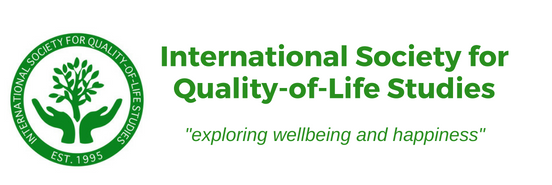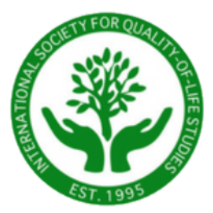ISQOLS Special Interest Groups
ISQOLS Special Interest Groups (SIGs) are collaborative communities designed to promote knowledge-sharing, innovation and interdisciplinary dialogue around specific themes in the field of quality-of-life and well-being studies. Each SIG offers a dynamic space for researchers, practitioners, and students to engage, exchange resources, and develop projects between ISQOLS conferences. ISQOLS Members Only: SIG Access I. Employee and Consumer Well-Being
Description: This SIG examines how both work environments and consumer experiences shape overall quality of life. It explores job satisfaction, work–life balance, organizational culture, and labor market dynamics alongside consumer issues such as product and service quality, ethical marketing, accessibility, and financial decision-making. By integrating insights across employment and consumption, the group highlights how organizations and systems can support healthier, more equitable, and more fulfilling experiences for both employees and consumers. |
|
II. Mental Health & Psychological Well-BeingDescription: This SIG examines the psychological and emotional dimensions of well-being. It focuses on the effects of therapy, counseling, and mental health interventions, as well as key topics such as moral injury, psychological safety, stress, burnout, and parent–child mental health relationships. Its work informs best practices in mental health services and promotes cross-cultural understanding of psychological resilience. III. Social Cohesion & RelationshipsDescription: This SIG investigates the role of social capital, trust, and community engagement in enhancing well-being. Topics include relationship quality within families, loneliness, neighborhood inclusiveness, and social cohesion. The group brings together scholars interested in how social connections buffer stress, strengthen resilience, and foster life satisfaction across diverse populations. IV. Education & Youth DevelopmentDescription: This SIG focuses on the role of education in well-being throughout the life course. It examines school environments, positive youth development, resilience-building programs, and the psychological effects of code-switching among students. Its findings inform education policies and interventions aimed at cultivating thriving, adaptable, and well-supported youth. V. Sustainability, Environment & Well-BeingDescription: This SIG connects environmental sustainability and ecological balance with human well-being. Areas of interest include climate action, degrowth, carbon finance, exposure to environmental hazards, and the psychological benefits of nature. The group promotes research and dialogue on aligning ecological stewardship with long-term human flourishing. VI. Measurement & Metrics of Well-BeingDescription: This SIG advances methodological innovation in assessing happiness, life satisfaction, and quality-of-life. It focuses on developing and refining beyond-GDP indicators, composite well-being indices, national dashboards, and efficiency measures of happiness. The SIG serves as a hub for improving the precision, comparability and policy relevance of well-being research worldwide. VII. Cultural and Indigenous Models of Well-BeingDescription: This SIG explores how culture, tradition and worldview shape conceptions and experiences of well-being. Topics include culture-based development, nonhuman well-being, indigenous knowledge systems, and Ubuntu-inspired frameworks. The group highlights diverse perspectives, contributing to the decolonization and contextualization of well-being research globally. VIII. Public Policy, Health, & WelfareDescription: This SIG examines the intersection of public policy, health systems, and social welfare as determinants of well-being. Areas of focus include universal health coverage, welfare programs, poverty alleviation, and social indicator analysis. The group seeks to inform evidence-based policymaking that enhances population well-being and reduces inequality. IX. Mobility, Migration & Urban LifeDescription: This SIG explores how spatial mobility, migration, and urban design affect quality-of-life outcomes. It investigates commuting experiences, neighborhood selection, urban–rural disparities, and migrant integration. The SIG aims to generate insights that inform urban planning and policies for more inclusive, resilient, and livable cities. X. Technology & Well-BeingDescription: This SIG investigates the complex relationship between technology use and well-being. Topics include remote work, digital well-being, online harassment, and the psychological impacts of artificial intelligence and automation. The group explores how technology can serve as both an enabler and a challenge to human connection, fulfillment, and ethical progress.
XI. Wellbeing Economics, Beyond GDP Description: This SIG explores economic models that place human and planetary well-being at the center of policy and practice. It focuses on alternative frameworks, as well as the use of well-being indicators in fiscal policy and governance. The group connects researchers and policymakers working to move beyond GDP toward more sustainable and equitable measures of progress. |
Access to ISQOLS SIGs is for ISQOLS members only. Not an ISQOLS member? Join us! isqols.org/join


